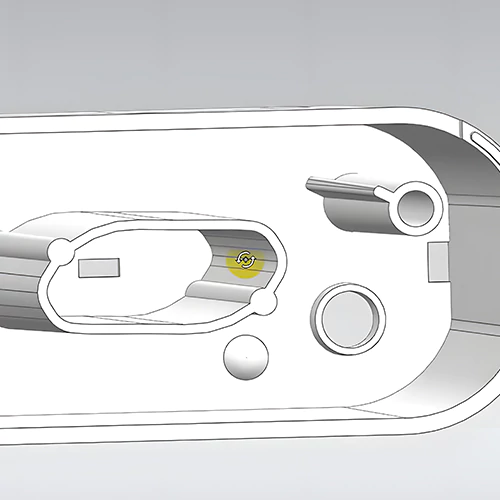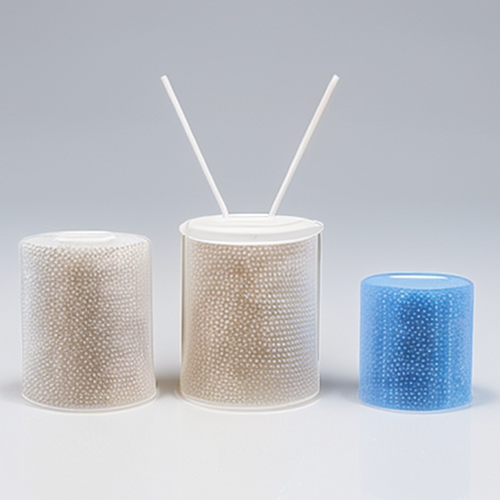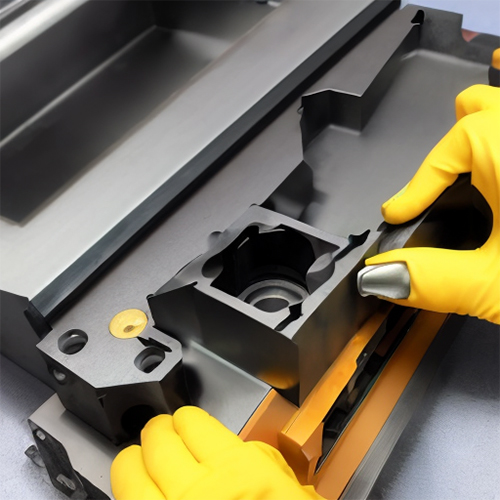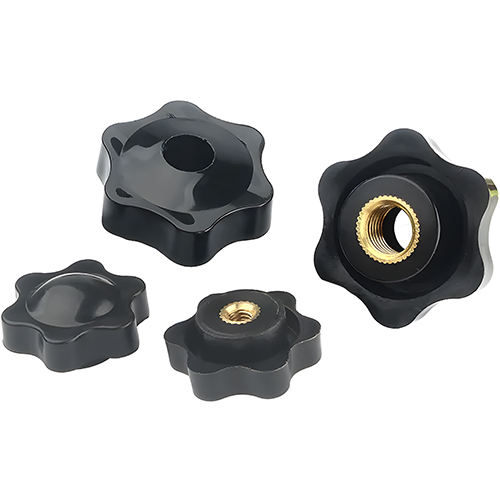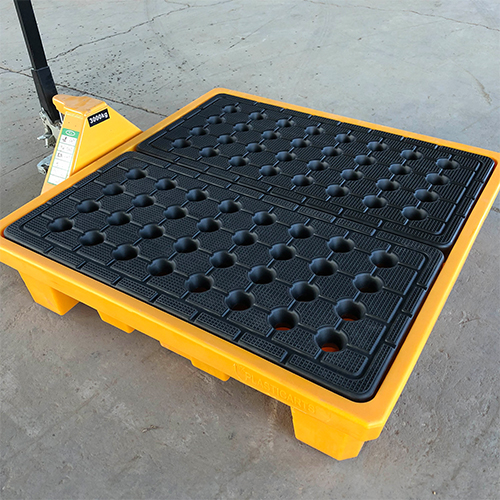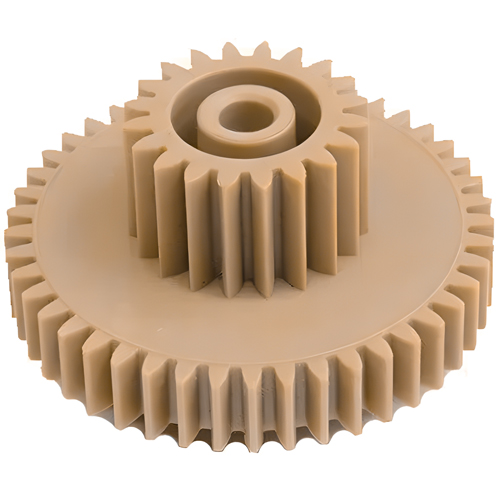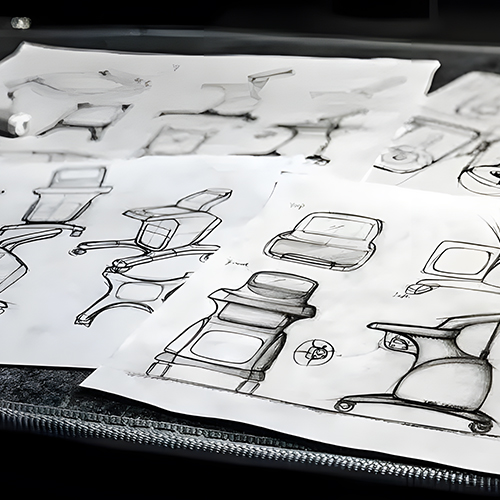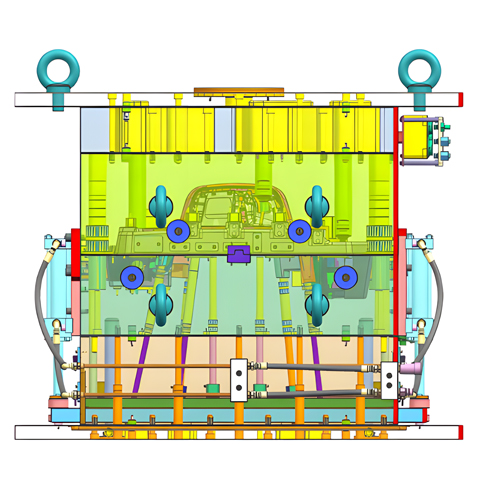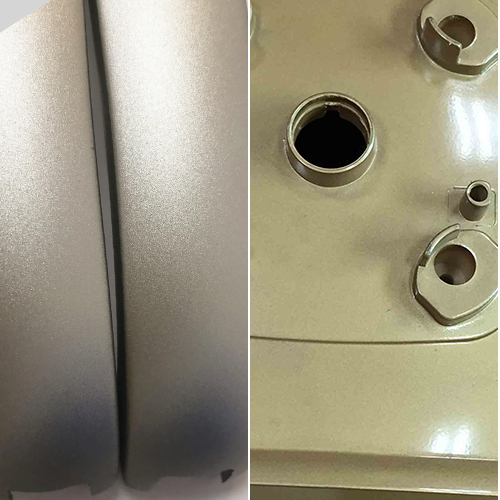Material selection is essential to any manufacturing process, but engineers and CNC machining service providers must be extremely careful regarding CNC machined parts.
Because this procedure is suitable for a wide range of materials — from metal to fiberglass to wood — it’s easy to select an adequate material but not optimal for the job. However, you may want to select the best metal material for your CNC machining project.
This blog will review several critical considerations to help you choose the best metal material for CNC machined parts.
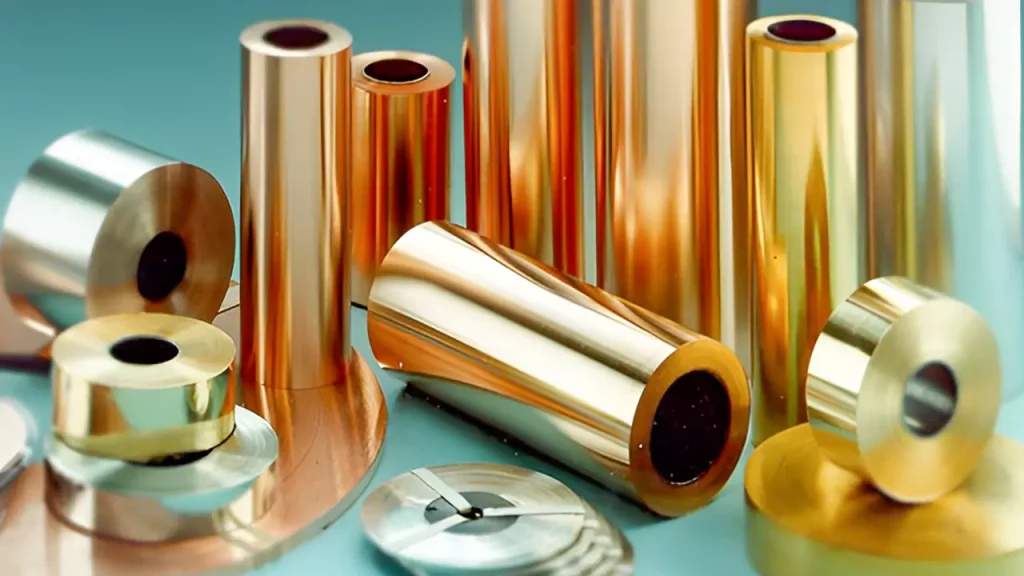
5 Common Metals for CNC Machined Parts
Product teams have many options for CNC manufacturing since any material, be it metal or plastic, that is sturdy enough for machining can be utilized. This brief overview will cover some of the most frequently used materials in CNC manufacturing today.
Stainless Steel
Alloys of stainless steel are tough and resistant to deformation, wear, and corrosion. Sulfur is added to 303 stainless steel to improve machinability, but engineers must be aware of this material’s several restrictions.
303 stainless steel cannot be cold-formed, heat-treated, or welded and requires great attention during CNC manufacture with speed/feeds and cutting tool sharpness. 303, on the other hand, produces great nuts, bolts, non-marine grade fittings, shafts, and gears.
304 stainless steel is a strong, non-magnetic all-purpose steel for CNC machined parts. Like 303 stainless steel, it is easily machinable and corrosion-resistant but can also be welded. 304 stainless steel is ideal for various consumer and industrial uses, including culinary items, tanks and pipelines, architecture, and more.
With the addition of molybdenum, 316 stainless steel has become more corrosion-resistant than 304 stainless steel or 303 stainless steel. It is a durable, weldable material and is among the few types of stainless steel suitable for use in marine environments.
Moreover, since it is impossible to discern stainless steel apart by sight, engineers in service-providing companies should test the raw material to check the properties of the steel they are employing.
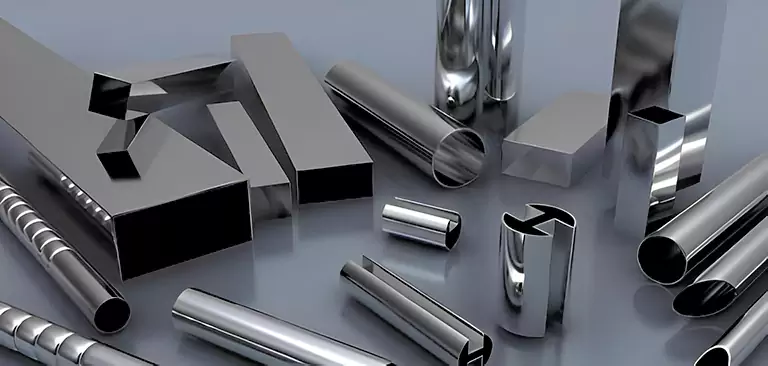
Aluminum
Aluminum alloys are easy to process in large quantities, have a high thermal and electrical conductivity, and have an excellent strength-to-weight ratio. They are also naturally corrosion-resistant. Aluminum 6061 is a general-purpose aluminum alloy frequently used in CNC machining. It is commonly found in automobiles, bicycles, sporting goods, and other recreational equipment.
This material is highly machinable; nonetheless, it is more expensive than other metals and does not perform well when exposed to seawater or certain chemicals. Aluminum 7075 is a higher grade than 6061. It is the strongest commercially available aluminum alloy and is ideal for aerospace frames and high-performance leisure equipment.
Titanium
Titanium is often utilized to manufacture components for the most challenging aerospace, military, and industrial applications because of its durability, toughness, and resistance to corrosion. Additionally, this material is biocompatible and excellent for producing medical devices.
On the other hand, titanium is more expensive than any other commercial metal, does not polish well, and is a poor conductor of electricity. You should also be aware that titanium is difficult to machine and requires specialized cutters.
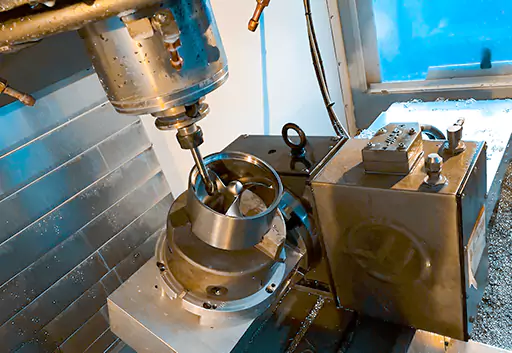
Carbon Steel
Carbon steel 1045 is a low-carbon steel grade. This material is frequently used in manufacturing since it is less expensive than most stainless steels while being stronger and tougher. 1045 is easily machined, weldable, and toughened or heat-treated to various hardnesses.
This material is perfect for strong, small mechanical parts such as nuts, bolts, gears, shafts, connecting rods, etc. Although 1045 can be used in architectural applications, it must be surface-treated to prevent rust and corrosion.
Nylon
Nylon is a versatile, low-friction thermoplastic that is frequently used as an alternative to metal in CNC-machined products. This material is rigid, tough, impact-resistant, and chemical-resistant but also surprisingly elastic. Service providers can freely alter nylon to attain the necessary qualities since it responds well to additions and fillers.
Electrical molding, fuel system components, gears, food packaging, fabric, and other applications are common uses for nylon. However, nylon readily absorbs moisture, which might negatively impact dimensional stability.
Ideal Metal Materials for Usage in All Situations:
Choosing a metal material primarily depends on the CNC machining materials’ characteristics and cost analysis. However, in most situations, you can also consider the following:
- Brass because of its high machinability at a reasonable price.
- Stainless steel because of its excellent strength and machinability. It is pricey, but it has a wide range of applications.
- Aluminum because it provides high machinability and strong strength, and hardness at the lowest cost.
Factors to Consider When Choosing Material for CNC Machined Parts
Selecting the right material is crucial for achieving optimal outcomes when producing CNC machined parts. Before arriving at a final decision, take into account the intended outcome of your purchase.
This way, you’ll have no trouble deciding on a material that offers both the quality and affordability you need in a finished product. Below are some of the considerations that go into choosing the best material for CNC machined parts:
Part Weight
Bigger does not imply superior. For example, aluminum and other low-density materials appeal to the automotive and aerospace sectors due to their lightweight and strength.
Applications for Parts
Check that your CNC material is appropriate for the specified use or environment. Consider the difference between stainless steel and carbon steel for structural parts utilized in a marine environment. Both materials can be machined. However, stainless steel will be better ideal due to its corrosion resistance. Carbon steel is preferable in a normal dry atmosphere since it is stronger and more durable.
Part Characteristics
The ideal CNC materials will have the necessary qualities to aid in effective machining without sacrificing functionality. As a result, you should consider the part properties available to you.
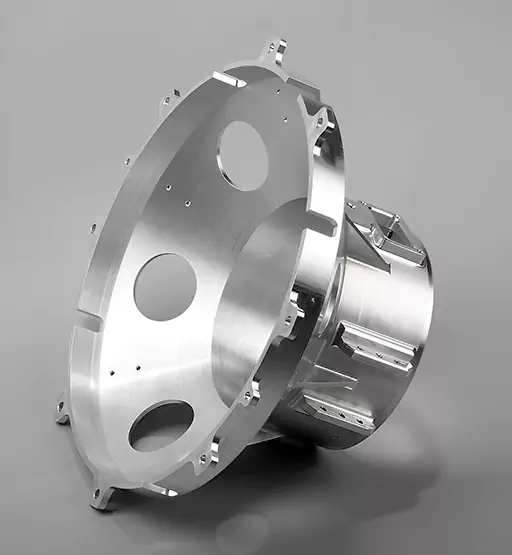
Strength
You can measure metal strength by considering various aspects, including tensile strength, compression or load bearing, toughness, and elasticity. This way, you can understand the strength of metals required for your project and evaluate if the chosen metal material fulfills the strength requirement per the mentioned criteria.
Machinability
Machinability indicates how well a material is suited to the CNC machined parts. The correct material should be highly machinable, increasing production efficiency and reducing CNC component destruction. Aluminum, copper, brass, and polymers are all highly machinable materials.
Moreover, machinability is poor in hard metals and tough plastics such as metal or carbon fiber. As a result of the necessity to adjust the CNC machine’s cutting speed and feed rates, this will result in low productivity and production efficiency. They may also cause damage to the metal pieces or necessitate the use of specialized cutting equipment, as in the case of titanium.
Endurance Strength/Limit
It is the overall ability of the material to absorb stress. Because of its microstructure, aluminum, for example, has no endurance limit. On the other hand, its alloys should have an endurance limit of 1/3 of their tensile strength.
Corrosion Resistance
Corrosion resistance is a material’s capacity to withstand foreign chemicals that can cause part failure. These alien substances aren’t confined to water. Oil, grease, and chemical reagents such as acids, salts, and alcohol are other examples. As a result, please read the material’s technical data sheet to confirm its capacity to tolerate chemical exposure.
Resistance to heat
Heat resistance measures a material’s capacity to withstand changes in mechanical characteristics caused by temperature changes. Ensure that the materials you select do not expand or contract unevenly in response to temperature changes.
Hardness
Material hardness decides what materials a CNC machine can cut by demonstrating its capacity to endure pinpoint surface loads. Hard materials are unsuitable for CNC machined parts because they can damage CNC machine components. They also require unique cutting techniques. Titanium, for example, necessitates the use of a diamond-cutting tool.
Parts Physical Attributes
When choosing a CNC material, aesthetics is not the most important consideration. However, considering it for specific products, particularly consumer goods, may be necessary.
Physical appearance can refer to the smoothness and color of the finished product. Metals typically have a smooth surface finish and a limited color range. Plastic materials come in a variety of hues.
Dimensions Tolerance of Metal
Dimension tolerance is the allowable limit in the variance of machine parts for proper operation. Highly machinable materials are required for increased dimensional tolerance.
Tight tolerance parts are easier to assemble. As a result, they are ideal for automotive and aerospace applications.
Furthermore, depending on the manufacturer, each CNC machine has a different tolerance level. The average tolerance, however, is 0.02mm. If you’re unsure about the tolerance, read our article on standard tolerance for CNC machining.
Budget for the Project
Because CNC machining is a subtractive process in which the machine chips away at the workpiece to create the final result, material cost is a significant consideration in CNC material selection. As a result, the project budget is the most important consideration in material selection. So make sure you choose a material with the needed qualities while staying within your budget.
—
If you seek professional help and suggestions to choose the ideal metal material for manufacturing CNC machined parts, feel free to contact our professionals at Prototool.

